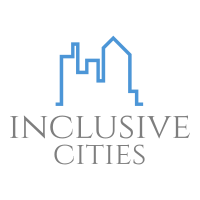This online course has been developed within the framework of “We All Belong in Here – Creating Diverse and Safe City Spaces” that was an Erasmus + KA2 strategic partnership in the field of adult education.
Our aim was to create an educational resource that can be used by practitioners – NGO workers, municipalities representatives, activists – who work with adults at risk of exclusion and who would like to learn how to start creating community projects and actions that aim at creative more open, inclusive, and safe urban spaces.
The course is divided into 10 Chapters as follows:
- Urban spaces: introduction, challenges, opportunities
- Get to know your neighbors: defining the target groups
- The city is yours: rethinking the concept of empowerment
- We all belong here: investigating and improving social obstacles
- Defining home: creating a sense of local identity
- Past, present, future: using historical and social heritage for creating innovation
- Mapping the territory: finding spaces for pop-up neighborhood events
- Sharing is caring: developing local support system
- Joining forces: building a local network and keeping it alive
- Hope for the best, prepare for the worst: risk management
Each chapter consists of
- an introductory text that gives you some theoretical background to the topic
- two practical tasks that you can do in your community
- a video interview with an expert for inspiration
Apart from the main chapters, we also developed some educational materials summarizing practical aspects of organizing the projects. These are in a form of guidelines with key information on the following topics:
- Practicalities 1: Resources needed for urban community projects
- Practicalities 2: Communication and visibility
- Practicalities 3: Securing the impact
When taking the course, you can either go through each module in the order we propose, or just explore the topics that interest you the most. The content is divided in a way that each chapter is a stand-alone educational resource.
In the end of the course you can also take an assessment test to see how much new knowledge you got!
We also invite you to take a look at the second project output – our Tool Kit on Community Need Assessment Methods [link]
